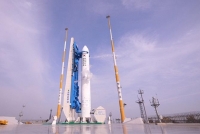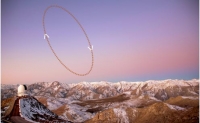
McDonald’s push into regional Australian areas battling obesity, diabetes alarms health experts
Feb 13, 2022 20:19 pm UTC| Science Economy Business Health
Health experts warned that while McDonalds expansion into regional Australia in the next two years would bode well for local economies, it would not be good for their populations health. About a third of the 100...

S. Korea to mix hydrogen to town gas by 2026 to reduce emissions
Feb 10, 2022 23:47 pm UTC| Science Economy
South Korea is stepping up to mix hydrogen into town gas to reduce greenhouse gas emissions and expand the supply of hydrogen. The Ministry of Trade, Industry, and Energy, Korea Gas Corp., Korea Institute of Energy...

S. Korea to invest ₩12 billion in 100-ton liquid engine for space vehicle
Feb 09, 2022 23:51 pm UTC| Science Economy
South Korea will invest 12 billion won in developing high-performance, liquid-fuel engines by next year as part of its space project, according to the ICT and science ministry. The country unveiled the Space Challenge...

Astronomers think they've just spotted an 'invisible' black hole for the first time
Feb 08, 2022 03:41 am UTC| Science
Astronomers famously snapped the first ever direct image of a black hole in 2019, thanks to material glowing in its presence. But many black holes are actually near impossible to detect. Now another team using the Hubble...

Asteroid sharing Earth’s orbit discovered – could it help future space missions?
Feb 04, 2022 02:24 am UTC| Science
Research has shown that the Earth trails an asteroid barely a kilometre across in its orbit about the Sun only the second such body to have ever been spotted. It goes round the Sun on average two months ahead of the...

A rogue rocket is on course to crash into the Moon. It won't be the first
Feb 02, 2022 09:43 am UTC| Science
In a few weeks time, a rocket launched in 2015 is expected to crash into the Moon. The fast-moving piece of space junk is the upper stage of a SpaceX Falcon 9 rocket which hoisted the Deep Space Climate Observatory...
Virtual labs can help students learn, but they can’t replace hands-on experience
Feb 02, 2022 08:45 am UTC| Science
An ill newborns life is hanging by a thread, and only the right diagnosis will afford her the treatment that may save her life. A cancer patients therapy can be tailored to the specific type of tumour they have, if only...
- Market Data













































